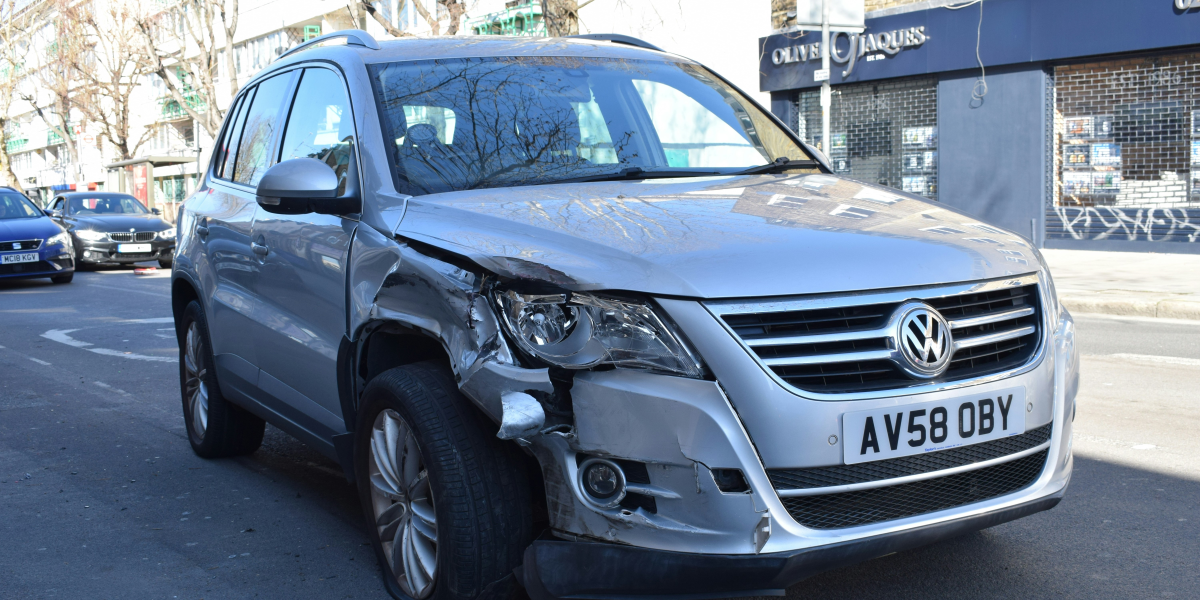Being in a car accident can cause more than just bodily harm; it can also be a highly stressful experience. Post-Traumatic Stress Disorder (PTSD), which may impact a person’s ability to function normally, is one form of psychological impact that can follow a traumatic event like a car accident.
Managing PTSD symptoms after a car accident involves understanding the condition, seeking appropriate treatment, and adopting effective coping strategies. Recognizing the signs of PTSD is an essential first step for those dealing with this condition after a traumatic incident.
Symptoms of PTSD After a Car Accident
PTSD manifests differently among individuals. Some commonly reported symptoms include:
- Flashbacks: This involves reliving the traumatic event through intrusive thoughts or vivid memories.
- Nightmares: Many people with PTSD experience recurring nightmares related to the car accident.
- Avoidance behaviors: Individuals may avoid people, places, or activities that remind them of the accident.
- Hyperarousal: People with PTSD may find it challenging to relax and may constantly feel on edge.
- Negative changes in thinking and mood: This may involve feelings of guilt, shame, or altered perceptions about oneself or others.
Seeking Professional Help
Getting professional support is crucial for processing trauma and developing healthy coping mechanisms. Working with a qualified mental health expert can provide strategies to manage distress and improve daily functioning. Therapy options, such as Cognitive Behavioral Therapy (CBT), can help individuals address negative thought patterns and behaviors. Another approach, Eye Movement Desensitization and Reprocessing (EMDR), is often suggested for trauma-related conditions.
Medication may also be prescribed by healthcare providers to help manage symptoms like anxiety, depression, or insomnia. For some, a combination of therapy and medication might offer additional support; however, it’s important to work closely with a healthcare professional to find the best course of action.
Self-Care Strategies for Managing PTSD
In addition to professional support, practicing self-care can also aid in managing PTSD symptoms. Physical activities like walking, yoga, and swimming have been linked to mood improvements and can help reduce stress. Exercise can naturally enhance mood through the release of endorphins.
Practices such as meditation and deep breathing exercises may also assist with anxiety management and grounding. Establishing a daily routine can create a sense of stability and control, which may help during recovery.
Journaling is another useful self-care practice that enables individuals to express their thoughts and feelings, helping to identify patterns and potential triggers. Additionally, limiting alcohol and substance use is advised, as these can sometimes worsen PTSD symptoms or hinder progress.
Building a Support System
A solid support system can play a significant role in managing PTSD. Connecting with friends, family, or others who have experienced similar trauma can provide comfort and reduce feelings of isolation. Knowing that others are there to listen can be reassuring.
Joining in-person or virtual support groups offers a safe space to share experiences and learn coping strategies from others facing similar challenges.
Preparing for Future Situations
Recovery from PTSD may involve gradually re-exposing oneself to previously avoided situations, such as driving or riding in a vehicle. Starting with small, manageable steps, like sitting in a parked car, may help rebuild confidence over time. Having a trusted person present during these steps can provide added support.
Final Thoughts
Dealing with PTSD after a car accident requires a multifaceted approach that includes understanding symptoms, seeking professional assistance, and incorporating self-care into daily routines. Building a support network and taking gradual steps to face challenging situations can also contribute to long-term well-being.
It’s important to recognize that everyone’s recovery journey is unique. Practicing patience and self-kindness throughout the process can be empowering. With the right approach and support, managing PTSD symptoms after a car accident is achievable, and it’s possible to work toward a fulfilling life post-recovery. Seeking help when needed can be a critical part of this journey.
Disclaimer: This content is for informational purposes only and is not intended as medical advice, nor does it replace professional medical expertise or treatment. If you have any concerns or questions about your health, always consult with a physician or other healthcare professional.
Published by: Holy Minoza






